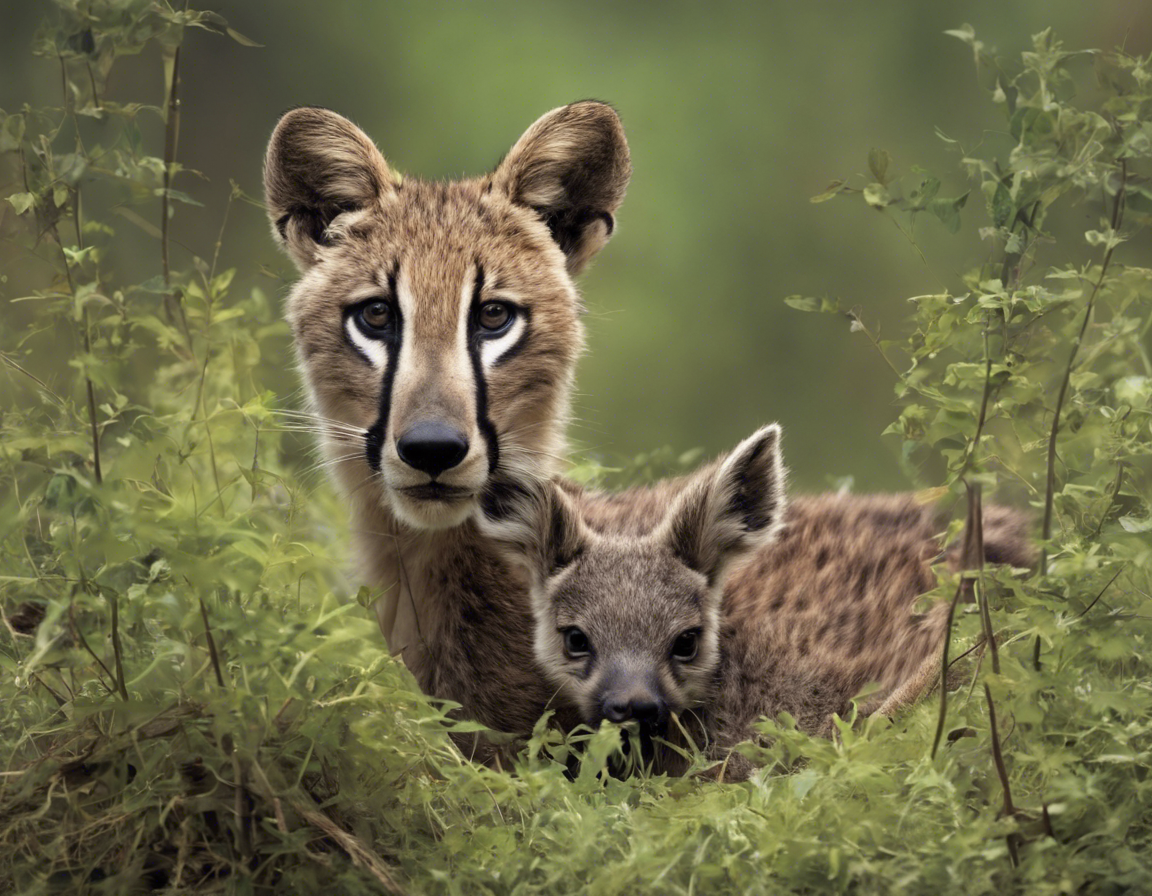Exploring the Wilderness: National Wildlife Day Slogan
Introduction
National Wildlife Day is an annual observance celebrated on September 4th to raise awareness about the importance of wildlife conservation and preservation. It serves as a reminder of the need to protect endangered species, habitats, and the environment as a whole. One of the ways to commemorate this day is by exploring the wilderness. This article will delve into the benefits of exploring the wilderness, tips for an enjoyable wilderness experience, and the significance of connecting with nature.
The Benefits of Exploring the Wilderness
-
Physical Health: Spending time in nature can have numerous physical health benefits. Hiking, biking, or simply walking in the wilderness can improve cardiovascular health, boost immunity, and enhance overall fitness levels.
-
Mental Well-being: Wilderness exploration is known to have a positive impact on mental health. The serene and calming environment can reduce stress, anxiety, and depression. It also provides a great opportunity to unplug from technology and reconnect with oneself.
-
Educational Opportunities: The wilderness offers unique learning experiences. From identifying different plant species to spotting wildlife, each encounter provides a chance to understand and appreciate the natural world better.
-
Adventure and Thrill: Exploring the wilderness can be an exciting adventure. Whether it’s climbing a mountain, kayaking through a river, or camping under the stars, there are endless opportunities for thrill-seekers to satisfy their adventurous spirit.
Tips for an Enjoyable Wilderness Experience
-
Plan Ahead: Before heading out into the wilderness, research the area, familiarize yourself with the terrain, and check the weather forecast. Proper planning can make your experience safer and more enjoyable.
-
Pack Essentials: Ensure you have the necessary supplies such as food, water, navigation tools, first aid kit, and appropriate clothing. It’s essential to pack light but not compromise on safety.
-
Leave No Trace: Practice responsible wilderness etiquette by leaving no trace of your visit. Pack out all trash, respect wildlife, and stay on designated trails to minimize your impact on the environment.
-
Stay Hydrated and Energized: In the wilderness, it’s crucial to stay hydrated and fueled. Carry an adequate amount of water and snacks to keep your energy levels up during your wilderness exploration.
-
Be Mindful of Wildlife: Remember that you are a guest in the wildlife’s home. Keep a safe distance from animals, do not feed them, and observe them from afar to avoid any potential conflicts.
Significance of Connecting with Nature
-
Ecotherapy: Connecting with nature has a therapeutic effect known as ecotherapy. It involves immersing oneself in natural environments to promote healing, reduce stress, and improve overall well-being.
-
Biodiversity Conservation: By exploring the wilderness and appreciating its beauty, individuals are more likely to become advocates for biodiversity conservation. This increased awareness can lead to actions that help protect endangered species and their habitats.
-
Cultural Appreciation: Many indigenous cultures have a deep connection with nature, considering it sacred and essential for their way of life. By connecting with nature, individuals can gain a greater appreciation for these cultural traditions and practices.
-
Personal Growth: Wilderness exploration can be a transformative experience that allows individuals to challenge themselves, confront fears, and discover new strengths. It promotes personal growth and self-discovery in a unique and profound way.
Frequently Asked Questions (FAQs)
-
Q: Is it safe to explore the wilderness alone?
A: It is generally recommended to explore the wilderness with a companion for safety reasons. However, if you choose to go alone, inform someone of your plans, carry emergency supplies, and be familiar with the area. -
Q: What should I do if I encounter wildlife during my wilderness exploration?
A: If you encounter wildlife, maintain a safe distance, do not approach or feed them, and remain calm. Respect their habitat and observe from afar to avoid any potential conflicts. -
Q: How can I prepare for wilderness exploration in terms of skills and knowledge?
A: Before embarking on a wilderness exploration, it’s essential to learn basic survival skills, navigation techniques, and wilderness first aid. Additionally, familiarize yourself with the flora, fauna, and potential risks of the area. -
Q: What are the best seasons for exploring the wilderness?
A: The best season for wilderness exploration depends on the region and the activities you plan to engage in. Generally, spring and fall offer mild temperatures and vibrant landscapes, while summer may be ideal for water-based activities. -
Q: How can I minimize my environmental impact while exploring the wilderness?
A: To minimize your environmental impact, follow the principles of Leave No Trace, stay on designated trails, avoid picking plants or disturbing wildlife, and properly dispose of waste by packing out all trash.
In conclusion, exploring the wilderness is not just a recreational activity but also a way to connect with nature, promote conservation, and foster personal growth. By venturing into the great outdoors with respect and mindfulness, individuals can experience the myriad benefits that the wilderness has to offer. So, this National Wildlife Day, consider embarking on a wilderness exploration to appreciate the beauty and significance of our natural world.
His love for reading is one of the many things that make him such a well-rounded individual. He's worked as both an freelancer and with Business Today before joining our team, but his addiction to self help books isn't something you can put into words - it just shows how much time he spends thinking about what kindles your soul!




